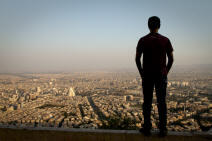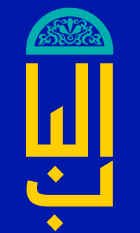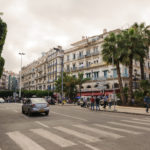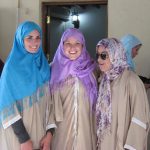Introduction by Richard Ammon
GlobalGayz.com
Photos, News & Reports for Gay Kuwait
Cultural changes come about very slowly for gays in the Muslim Middle East. This story appeared several years ago in the Kuwait News; it is an unusual story since homosexuality is rarely discussed publicly, let alone published in a newspaper. (However this is an English language paper so relatively few locals would see it.) Not much has changed since this story posted in 2007. The vast majority of gay-oriented citizens follow society’s rules and get married, others find excuses not to marry (business, religion) and a lucky few find their way to the West where they can live more freely. But most only ever come out to a trusted friend or friends. Here, Bader, a young gay man bravely talks to journalist Hussain Al-Qatari in private about his life and feelings about being gay in modern Kuwait.

by Hussain Al-Qatari, Staff writer
November 09, 2007 – Kuwait Times
Living openly as a homosexual still carries dire consequences, in some countries gays can be prosecuted and even put to death. Bader, a 22-year old Kuwaiti, says he is working on getting his writings published abroad one day. “I find writing to be very liberating. It gives me more freedom to express myself and speak freely. I see who I really am in what I write. I met him four years ago. It was my first year in university, and Bader and I were together in a conversation and debate class. I liked the way he made his arguments. (image right, Kuwait gay flag)
He knew how to phrase his thoughts eloquently, and knew just the right thing to say to get on your nerves in a debate. “I’m just saying,” he would say innocently whenever someone reacted angrily. A couple of months ago on a humid night, as a group of friends decided to get together, Bader came out to us. “I am gay,” he said, as we were sitting in a Starbucks. He said it as he was passing his favorite chocolate espresso beans to us. “Yes, of course you are,” said one of my friends in an attempt to brush off what he thought was a joke. “We are all, aren’t we? Gay and happy and merry?
Bader looked each of us in the eye, anticipating our reactions. Later he told me that he was always afraid no one would accept him. “I really don’t want people to change their attitude towards me. I am 22. If, by this age, I fail to keep my friends around me, I don’t think I’ll ever be able to make friends. We talked several times about how he feels about his sexuality. “It’s hard,” he says. “It’s so hard for me to wear a mask every day and pretend that I am something that I’m not. I asked him if he finds it threatening for others to know about his sexuality. “I don’t get it. I really don’t get it. I don’t understand why it matters to them. But it scares me to think that they might ‘cut all ties’ with me. I don’t want it to happen.
Gays are becoming more visible in the Arab world. Living openly as a homosexual still carries dire consequences, in some countries gays can be prosecuted and even put to death. But that hasn’t stopped the issue from becoming more openly discussed. In Kuwait, homosexuality is no longer a taboo subject matter – even if it’s still taboo for individuals. References to it have been made in some TV series, namely Al-Watan’s Abu Qotada & Abu Nabeel caricature-based cartoon that aired this past Ramadan. Cases of transgenders asking to be treated according to their ‘modified’ sex have made it to courts and were reported in magazines and newspapers.
 Yet there is a certain stereotype of the homosexual that continues to prevail among Kuwaitis. Not only Kuwait, but the Arab world is acknowledging homosexuality with the mention of homosexuality in the recent rape case in Dubai. The story made it to the front pages of newspapers in the region. Interest in gay people was notably put under scrutiny by Brian Whitaker from Guardian in his book ‘Unspeakable Love’, a book acclaimed by national critics around the world.
Yet there is a certain stereotype of the homosexual that continues to prevail among Kuwaitis. Not only Kuwait, but the Arab world is acknowledging homosexuality with the mention of homosexuality in the recent rape case in Dubai. The story made it to the front pages of newspapers in the region. Interest in gay people was notably put under scrutiny by Brian Whitaker from Guardian in his book ‘Unspeakable Love’, a book acclaimed by national critics around the world.
In other Arab countries, though predominantly Muslim, gays are becoming more open about their homosexuality risking imprisonment and death threats. In Lebanon, for instance, where homosexuals live freely, although still socially ostracized, there are associations openly fighting for gay rights. In Egypt, though homosexuality is heavily frowned upon, even among the more open-minded upper class and is a punishable crime by law, surgeries for changing one’s sex are not forbidden and the country is the home for Al-Azhar male student who changed his sex and became a famous belly dancer with his (now her) photos plastered all over the news.
They assume that I am less masculine. That I lean towards the feminine. That I’m interested in things like make-up and fashion and … Lady Gaga!” Bader says it’s in fact quite different. “It’s more than music and fashion and pink fluff. It’s totally irrelevant. It has nothing to do with being more female or male. I am proud of who I am, and I enjoy my masculinity. I hate to have it threatened by my orientation.
It started long ago when he was a child, says Bader. “My first experience was at the age of nine.” It happened with an adult, he later told me. I know it might sound horribly dramatic. But I don’t blame my orientation on an incident that happened during my childhood. I see that attitude to be immature and pathetic,” Bader says. For a while I considered seeing a doctor. I was convinced that my tendency toward other men was a sickness. It was a lonely period, growing up to be different and having all these conflicts within myself. ”
Bader’s loneliness, though, is not at all the reason behind his sexual orientation, he says. “I think it’s something I was born with, cliched as this might sound. I asked Bader’s closest friends about how they took the fact that he is gay. “I have a Korean friend who is a Communist. I have other friends who are vegetarians and atheists; and our housemaid is a Buddhist. I don’t have a problem with any of them,” says Kawthar, a 23-year old girl who’s known Bader for eight years. “I always sensed that he was different. I could never pin-point it!
Hashem, a 24-year old friend of Bader, says he was shocked. “I never thought he was a homo! He knows more girls than I do! What worries Bader, though, is his family. “I come from a very conservative family. It can be very extreme; we were not allowed to listen to music at home. I hate to think that I would disappoint my parents. It’s hard for me to think about it. Now that I’ve graduated, they would expect me go get married soon and have kids – you know the usual life story that parents expect their children to live up to. I don’t see it happening. And I’m scared. (image right: Gay and Lesbian Arabs website logo)
In recent years, Kuwait has become more aware about homosexuality. The subject has been addressed more than once on television. Preachers condemn it as a big sin, claiming that it stems from a lack of faith and the contagious ‘westernization’ that has struck Kuwait in this new century. Generally, people still view it as something abnormal. In some cases even as a sickness that needs treatment. And yet, just like alcohol and relationships between males and females, it’s there. Even if it isn’t accepted. It’s there.
Originally published November 09, 2007 – Kuwait Times
by Hussain Al-Qatari, Staff writer
















